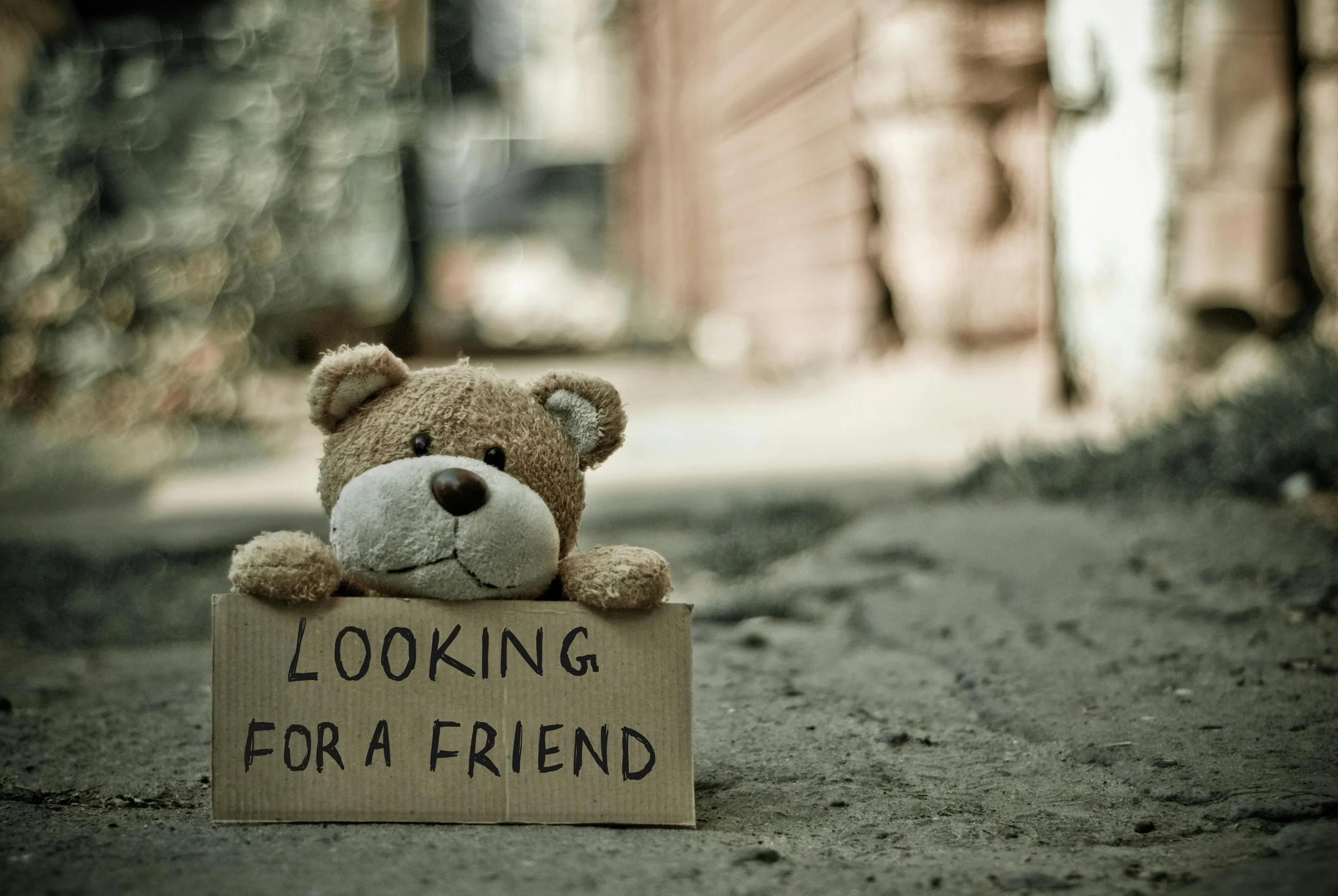The material on the Site is provided for educational purposes only, and is not to be used for medical advice, diagnosis, or treatment. Use of the Site is subject to our Terms.

Fear, Labels, and Listening: What We Lose When Fear Leads the Conversation
In moments of national tension, fear often drives us further into our labels and away from each other. I recently tried to have an honest conversation about these divisions with one of my closest friends, only to feel his guardedness—and my own struggle to connect—get in the way. What I’ve been noticing, both personally and in my work with clients, is how fear of being misunderstood, losing identity, or facing the unknown makes real dialogue nearly impossible. If we can first acknowledge that fear, and understand our own values, we can begin to listen to each other with more compassion.

The Fallout We Don’t Talk About: When Friendships Go Silent After Conflict
Friendship endings rarely come with warning labels. Sometimes they don’t even come with words. One day you’re sharing laughs and inside jokes, and the next… there’s silence. No blow-up. No dramatic goodbye. Just unanswered texts and a slow fade that feels like an open wound you can’t close.
This kind of loss doesn’t get the recognition it deserves, yet it lingers in our bodies and minds. We replay conversations, wonder what went wrong, and struggle with the haunting uncertainty of Did I matter? Did it mean as much to them as it did to me?
The truth is, friendship silence is its own kind of grief, a confusing, ambiguous loss that has no ritual, no script, and no roadmap. And while we don’t talk about it enough, family systems theory gives us language for the ache and even some tools for healing.

When You Leave… and No One Follows: The Quiet Pain of One-Sided Relationships After a Transition
Feeling erased after leaving a job or community? Learn how ambiguous grief, imposter syndrome, and systems thinking can help you understand and heal.

Bare Minimum or Princess Treatment? Why Relationship “Standards” Are About More Than Flowers
The internet’s debating what counts as the “bare minimum” or “princess treatment” in relationships — but the real flex? Talking openly about your needs. In this blog, I break down how to have healthy, playful conversations about expectations, even when it feels awkward. Plus, how couples can co-create relationship guidelines that actually work — for both partners.ction.

When Saying Yes Means Losing Yourself: How People-Pleasing Hides Anxiety (and Hurts Relationships!)
People-pleasing can feel like love, loyalty, or support — but it’s often a short-term strategy for managing anxiety. And the cost? Your energy, your voice, and your trust in your own boundaries. This blog explores what it really means to say yes — and how to stop pleasing at the expense of yourself.

Is Everyone Toxic, or Are We Just Tired of Being Uncomfortable?
“I cut off my mom and I’ve never felt better.”
Statements like this are common on social media—and they’re often met with applause. In a culture increasingly fluent in therapy-speak, cutting people off is being reframed as empowerment. But as a systems-based therapist, I can’t help but wonder: Are we building emotional safety, or simply avoiding discomfort?
The term “toxic” has become a vague stand-in for anyone who challenges us, annoys us, or doesn’t validate us—and the result is a growing tendency to sever relationships rather than repair them. While there are absolutely times when stepping away is necessary, especially in cases of abuse or harm, I worry that this broader cultural shift may be leading us toward isolation, emotional fragility, and a diminished tolerance for difference.
What happens when we stop working through conflict—and simply walk away?

Beyond Labels: Understanding Attachment Styles Through a Social Construction Lens
If you’ve ever labeled yourself “anxious” or “avoidant,” you’re not alone — attachment styles are everywhere. But they’re more than just personality quizzes. Through a social construction lens, we explore how your attachment patterns are shaped in context — by relationships, culture, trauma, and experience — and how they can evolve. You’re not stuck. You’re shaped by connection, and capable of building new ones.

Loving Too Hard? How Over-Nurturing Can Undermine Your Partner’s Growth
When caring turns into over-functioning, we risk creating imbalance in our relationships. This blog explores how over-nurturing—though well-intentioned—can lead to partner infantilization, fostering dependence rather than growth. From cleaning up after your partner to managing their schedule, these patterns often stem from anxiety and a desire to help. Learn how trust, vulnerability, and system awareness can restore balance and strengthen your connection.

When Anxiety Picks a Fight: How Hidden Worries Show Up in Our Relationships
Struggling with anxiety in your relationship? Learn how anxiety can manifest as irritability, impatience, or conflict, and discover practical tools for self-awareness, communication, and emotional regulation. Strengthen trust with your partner by taking ownership of your feelings. Read more to explore how therapy or coaching can help.

Trust: Understanding the Nuances in Relationships
Trust isn’t just about the big betrayals—it’s also about the small moments of reliability, support, and emotional safety. You might trust your partner to be faithful, but do you trust them to parent without micromanaging? To handle responsibilities without reminders? To listen without judgment? True trust means feeling safe to be yourself, flaws and all. If you’ve ever filtered your words to avoid criticism or hesitated to share your feelings out of fear of being dismissed, you’ve experienced the nuances of trust. Let’s dive into what trust really means in all areas of life.
Search for a subject or select from the category list to the right.

